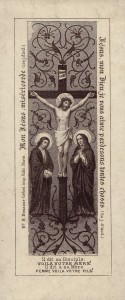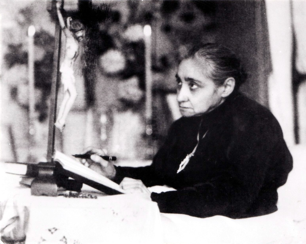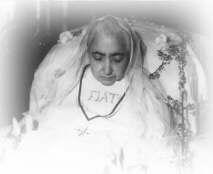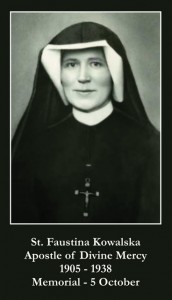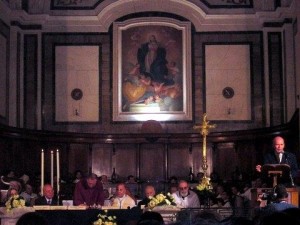
Mother Church in Corato, Italy
Closing Cause of the Servant of God Luisa Piccarreta – October 29, 2005
***
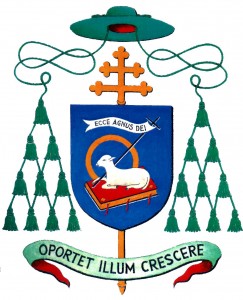
Mons. Giovanni Battista Pichierri
ARCHBISHOP
of TRANI
– BARLETTA – BISCEGLIE
TITOLARE of NAZARETH
Prot. 29/06GBP
Dearest brothers,
In the meeting held at Corato last October (in 2005) on the occasion of the closing of the Cause of Beatification of Luisa Piccarreta, Providence had allowed many of you to participate, who for so many years worked in order to make known the great
spiritual wealth and the gift that the Lord offers us in the life and in the writings of Luisa. At that gathering stood out the desire of meeting again in the next few months, in order to deepen the sense of fraternity that must be there between those who serve the
Kingdom of the Divine Volition according to the spirituality of the Servant of God, keeping in mind the Pauline text 1, Cor. 1,10: “Therefore I urge you, brothers, in the
name of our Lord Jesus Christ, to be completely unanimous in speaking, so that
there are no divisions among you, but be in complete union of thought and intent.”
The meetings are profitable for various reasons:
1st. The life of the Servant of God Luisa Piccarreta is extraordinary, especially in the way of how she lived the spirituality of the Divine Will, of which she is an exemplary model. But not only her life gives proof of it, also her writings do. It is necessary, therefore, to understand them and to present them in the context of her
life. We must therefore know how to present her spirituality taking into consideration the deeply human Christian and Ecclesiastical roots that sustain and accompany all her
spiritual experience.
2nd. Such mystical experience, by itself very profound, Luisa sometimes had difficulty in manifesting in writing because of the limits of the human language and of her own personal, cultural, and historical limits. We cannot therefore teach
or claim to apply to life, in a literal and radical way, all that one reads in her writings.
We need a mature reflection in the context of the Catholic Faith and in the overall view of all her writings for however long she lived and wrote, so that our teaching be fruitful. Otherwise we run the risk of diffusing not a spirituality that helps to fully grow, but a spiritualism separated from the concrete life and from the ecclesiastical life, that easily becomes fanaticism.
3rd. All of you who have taken part in the meeting of October, certainly feel as one called and feel a duty shared with everyone in the Church, the spirituality lived by Luisa.
Nevertheless, the experiences of these years says to us that the doctrine of the Divine Will has not always been presented in a respectful and correct way, according to the Doctrine and the Magisterium of the Church, placing in the mouth of Luisa statements that one does not find even implicitly in her writings. This causes trauma in consciences and even confusion and refusal in the people and among the Presbyteries and Bishops.
Other times they distort certain essential themes or points of this spirituality,
presenting them outside of the context and the totality of the writings. They make unauthorized deductions or conclusions; subjective thoughts are given as objective truth, or else they emphasis secondary aspects as if they were essential, in this way distorting the substance and diverting attention to less important things. From this is the need of seeing possible deformations, inaccurate interpretations, imprudent or inappropriate teachings, in order to correct them and to present everything in full conformity with the Doctrine of the Church.
The meetings should help us to have a clear hierarchy of the truths that the Lord
has given Luisa, so as to pass them on in order and with the suitable educational methods.
4th. The gatherings will help us to remember those essential points of our Faith, that we can never forget in presenting the Divine Will. If at times they become
implied, ignoring them or diminishing their importance, it is because the writings of Luisa and the spirituality of the Divine Will are placed above, creating a kind of confrontation between both of them. Other times they are reinterpreted in the light of such doctrine, but not in a correct way.
5th. In each meeting we can examine some from among the most significant or essential aspects of the spirituality of the Divine Will, to make evident what possibly does not go well in the way it is presented and taught to the faithful, and arrive at practical conclusions for a more uniform and healthy diffusion of the writings of Luisa and of the spirituality that they contain.
Therefore, by personal and restricted invitation, in the month of October, a gathering of thorough study will take place. (Detailed invitation will follow)
The subject to be taken into consideration is: the Life of Luisa as life in the Divine Volition. From the analysis of the writings drawn from:
– The Hours of the Passion;
– The Queen of the Kingdom of the Divine Will;
– Letters of Luisa and St. Annibale
– The First 19 Volumes of the Diary; It will have the following question to argue: “What does to live in the Divine Volition mean?”
The meeting will conclude with the preparation of a summary of the subjects dealt with, and proposal of a presentation of themes for the faithful.
I thank each one in advance for your helpfulness, I cordially bless you,
Trani, March 9, 2006
X Giovan Battista Pichierri

